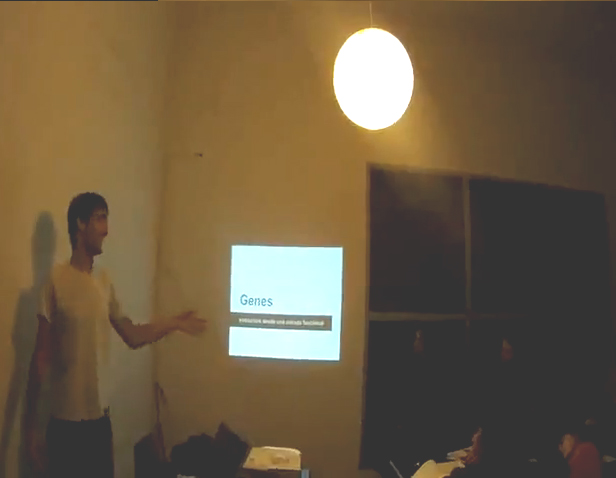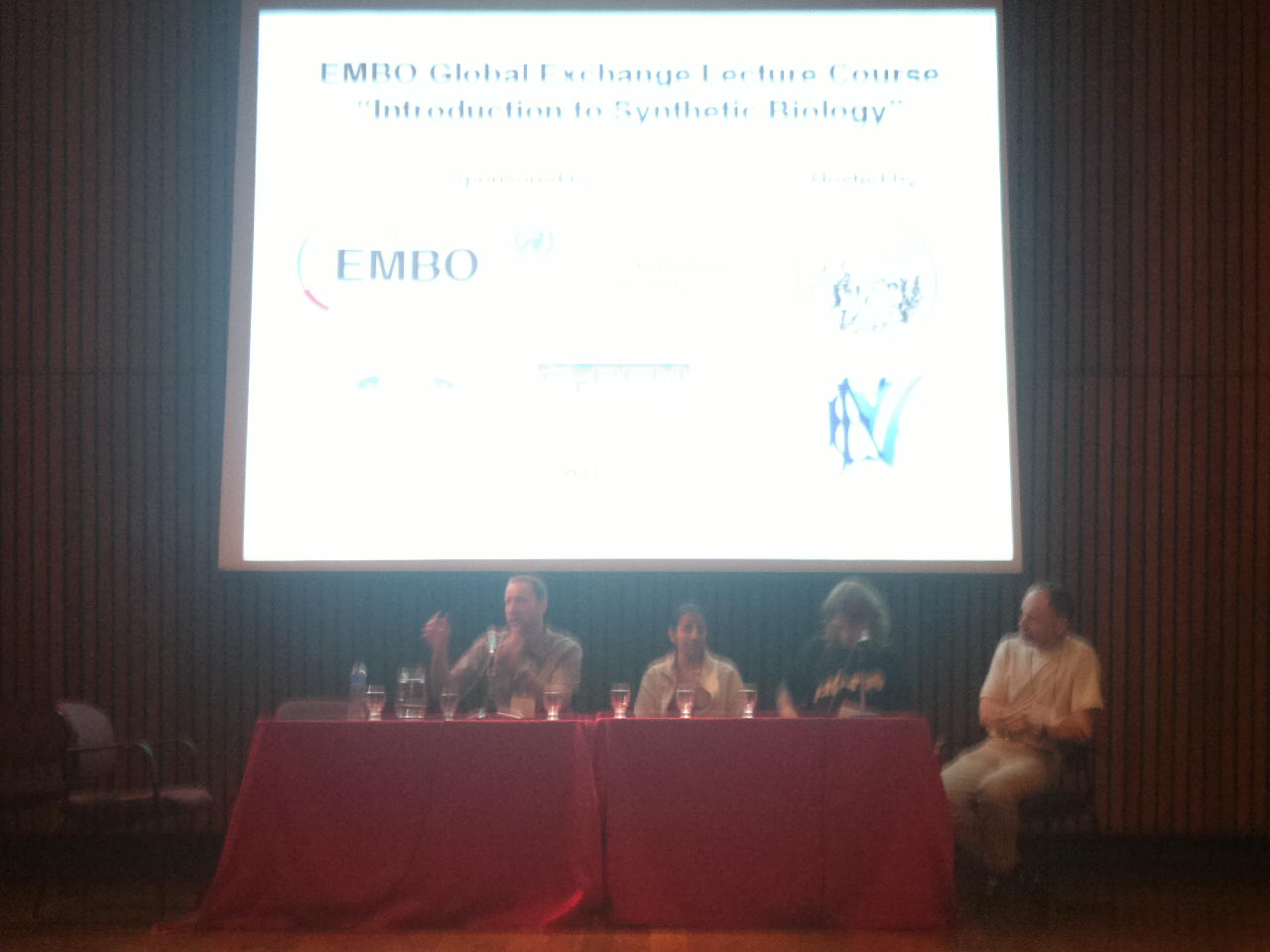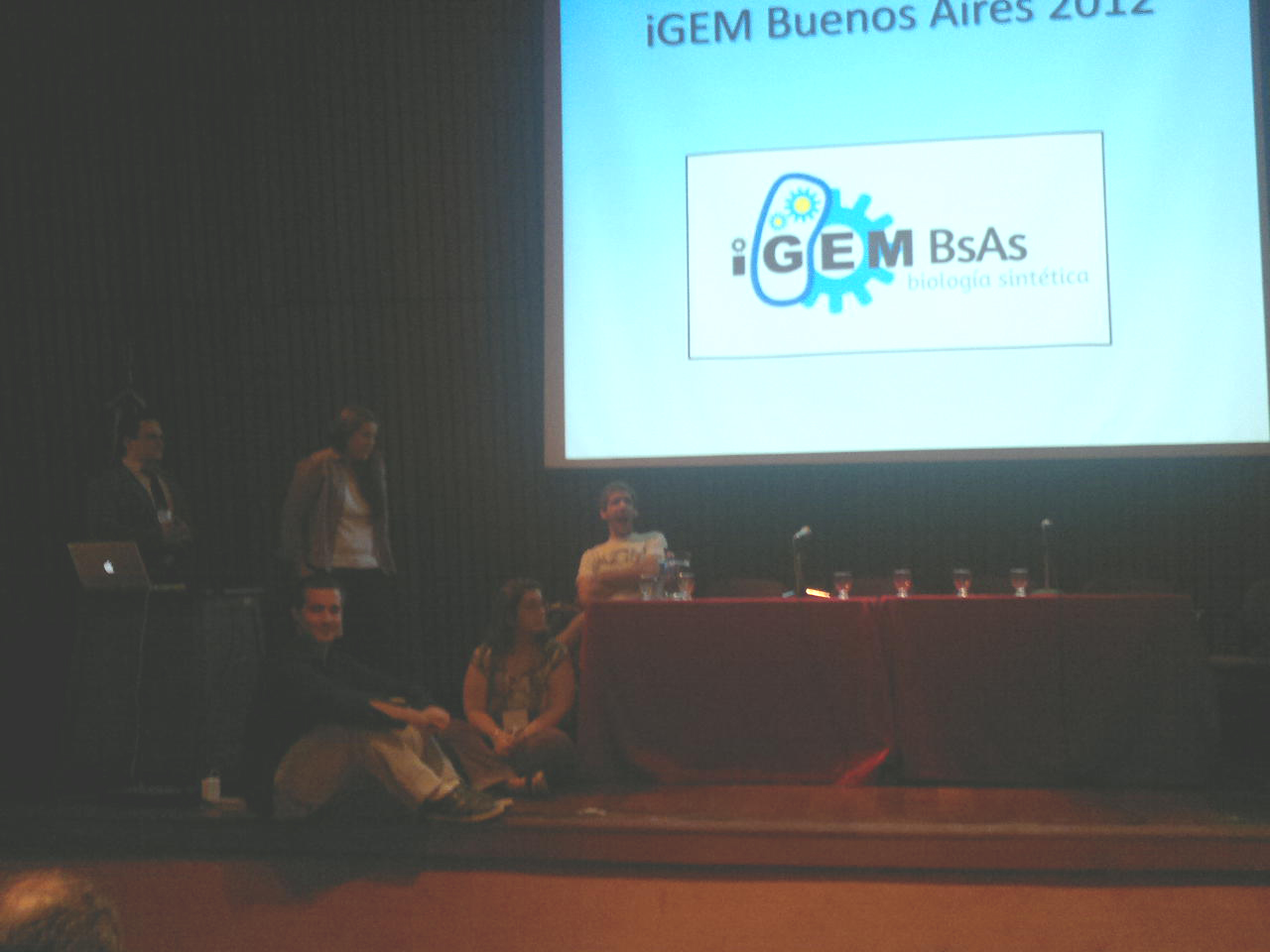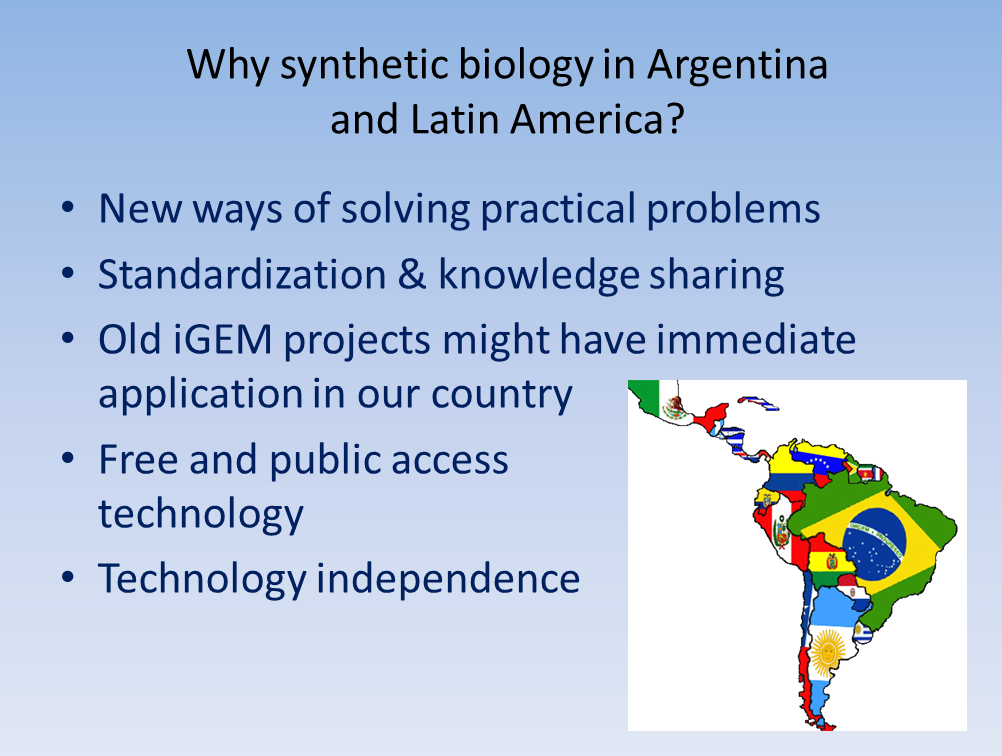Team:Buenos Aires/HP/GarageLab
From 2012.igem.org

Contents |
Garage Lab
|
GarageLab is a group of scientists, artists and engineers cofounded by Emiliano Kargieman and Dario Wainer in 2009 as a Workshop about Bioengineering at the University of Palermo. During these years, it grew up to be a multitasking group, by getting involved in subjects such as Neuro-robotics, Contamination assessment, Data Privacy and Management, Personalized Medicine, Public Information and Problematics of Open Innovation. Now a days, the group has 22 active members and 5 projects with Non governmental organizations. They are evolving in order to become an institution and in process of building a propper infrastructure that would allow the resolution of high impact issues, as much as bigger workshops, hackatons, talks, conferences and developments. You can find out more about this creative and talented group of people at: http://garagelab.tumblr.com/ or their twitter http://twitter.com/garagelab |
Learn and play session
Our project together - Future plans
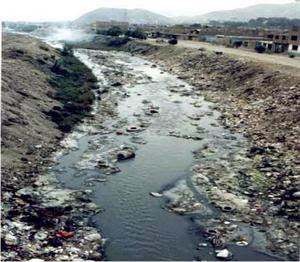
| At the beggining of 2012, Garage Lab made a contact with our instructors in order to begin a productive relationship. They believe in the impact that the use of the standard parts of Synthetic Biology could have in our country, in order to solve endemic issues and they want it to become part of their projects and society. Since then we had a formal presentation of the group and our main project at a Garage Lab Meeting and several of our team members have attended the group meetings often.
Shortly after the first contact with Garage Lab, they came to our laboratory and together we planned on giving use to the parts that come in the Kit in order to assess a key problem in Buenos Aires, which is the contamination present at Riachuelo, a branch of Río de la Plata. Several thousands of people live at the coast and nearby this highly polluted area which has been prooven very hard to remediate from the environmental point of view, but also, a political challenge given its social and economic implications. |
|
As a iGEM team we are thrilled to become part of this competition, but there is more to do as a participant. Besides being part of the competition, we have a greater goal that is to actually be able to apply and share the knowledge and free technology developed at iGEM and by the Synthetic Biology Community to solve endemic problems of our country. Therefore, the Garage Lab collaboration proposition came perfect to us and we started thinking about a secondary project for after the Jamborees, that would aim to identify and measure water contamination with heavy metals and maybe other noxious components at Riachuelo. In order to assess this, we aim to develop a set of biosensors using the parts from the Registry, specially the arsenic biosensor. We have already contacted Edinburgh 2006, Cambridge 2009 and SouthBend 2011 Teams regarding the procedures and experiences the have had related to arsenic detection using biobricks. We found an amazing support, ideas and encouragement from every team we contacted, including teachers and students.
| 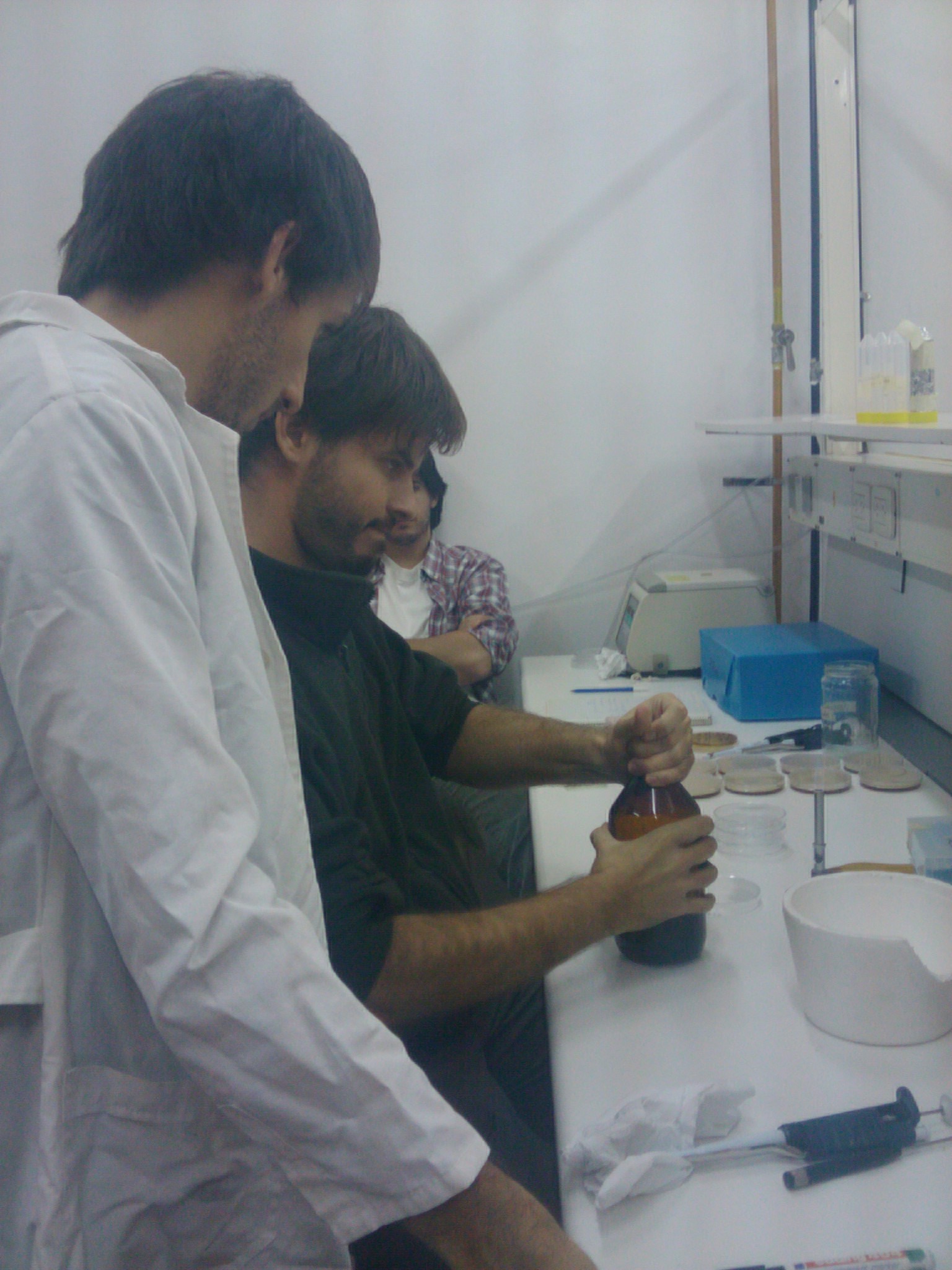
EMBO Course Buenos Aires 2012In April 2012, our university held the first Latin American EMBO Global Exchange Lecture Course which at the same time has been the first Latin American gathering of people that are interested in Synthetic Biology. This course was held by the second time, but it just became international this year. The idea came from our instructors Alejandro Nadra and Ignacio Sanchez, from the Biological Chemistry Department at the University of Buenos Aires together with Raik Grünberg from the Centre for Genomic Regulation (Spain) and Alejandro Colman-Lerner from the Department of Physiology, Molecular and Cell Biology at University of Buenos Aires.
Here, students from the region were invited to learn and share their thoughts. We had lecturers as invited speakers, including several of the first iGEM founders. Besides, the course became the scenario where we were presented as the first Argentinian Team to participate in iGEM and we had an amazing reception and encouragement from the audience. You can check this year course at http://events.embo.org/12-synthetic-biology/ The response was amazing, the university received students coming from Mexico to Chile and the outcomes were fabulous: Latin America is a growing region and a great promise for this upcoming discipline. Among other conclusions arrived at the course is that we are certain that many local problems can be solved through Synthetic Biology. Furthermore, the free exchange of knowledge and technology, which are the basis of the competition, are invaluable for the region.
|
 "
"

